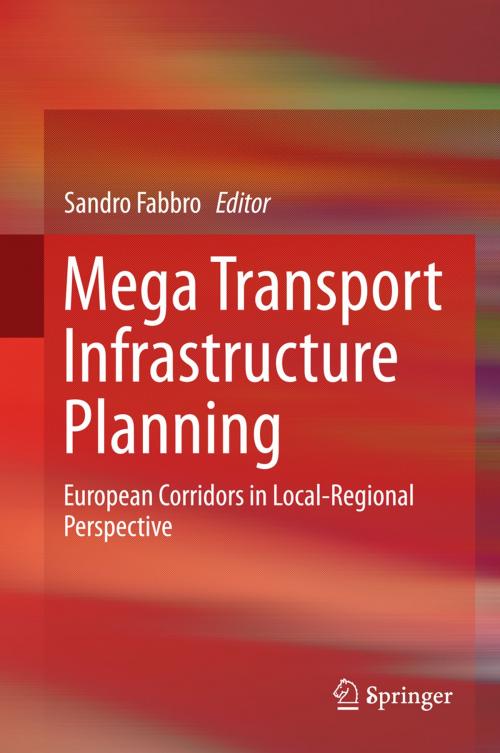Mega Transport Infrastructure Planning
European Corridors in Local-Regional Perspective
Nonfiction, Science & Nature, Technology, Engineering, Civil, Power Resources| Author: | ISBN: | 9783319163963 | |
| Publisher: | Springer International Publishing | Publication: | September 10, 2015 |
| Imprint: | Springer | Language: | English |
| Author: | |
| ISBN: | 9783319163963 |
| Publisher: | Springer International Publishing |
| Publication: | September 10, 2015 |
| Imprint: | Springer |
| Language: | English |
Based on the work of Poly5, or the Mediterranean Corridor, mega-transport infrastructure project, this ground-breaking reference explains how and why traditional top-down government-defined transport planning policies are failing, due to their tendency to eschew acknowledgement of profoundly multifarious local and regional issues. The authors use cognitive reports from the Mediterranean Corridor experience as a learning platform, unpacking the tangled sources of the challenges faced to find firm ground from which to embark upon future projects. They propose the replacement of the current fragmented and unbalanced implementation efforts across various territories with a bottom-up, holistic, inclusive approach in which individual territories and regions have buy-in from the outset, a chance to bring their strengths to bear on the broader infrastructural planning, an ongoing communication channel to report and tackle difficulties and clear, strategic directives to drive sustainable future growth of environmentally desirable and practical mega-transport systems.
Based on the work of Poly5, or the Mediterranean Corridor, mega-transport infrastructure project, this ground-breaking reference explains how and why traditional top-down government-defined transport planning policies are failing, due to their tendency to eschew acknowledgement of profoundly multifarious local and regional issues. The authors use cognitive reports from the Mediterranean Corridor experience as a learning platform, unpacking the tangled sources of the challenges faced to find firm ground from which to embark upon future projects. They propose the replacement of the current fragmented and unbalanced implementation efforts across various territories with a bottom-up, holistic, inclusive approach in which individual territories and regions have buy-in from the outset, a chance to bring their strengths to bear on the broader infrastructural planning, an ongoing communication channel to report and tackle difficulties and clear, strategic directives to drive sustainable future growth of environmentally desirable and practical mega-transport systems.















